Latest DePIN Funding News
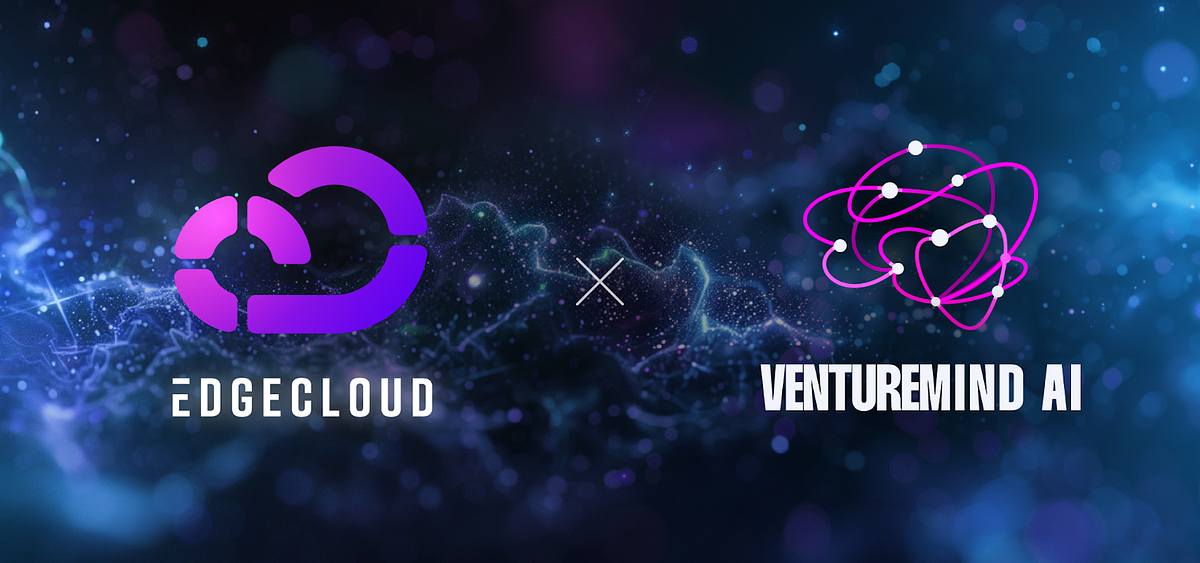
a year ago
VentureMind AI Partners with Theta EdgeCloud to Enhance AI and Robotics Capabilities
In an exciting development for the intersection of AI and blockchain, VentureMind AI has announced a partnership with Theta EdgeCloud. This collaboration aims to leverage Theta's decentralized, low-latency compute and streaming resources to enhance VentureMind AI's capabilities. By integrating EdgeCloud, VentureMind AI will be able to scale its AI tools, optimize video rendering, and offer real-time robotics control, significantly improving its service offerings in sectors such as construction and security. This partnership marks a significant step in creating a comprehensive ecosystem that merges AI innovation with decentralized finance and advanced robotics.
VentureMind AI is a pioneering platform that allows users to create, mint, and trade AI tools as NFTs, providing a unique layer of ownership and income potential. The platform also features a custom Autonomous Agent builder, enabling users to launch tokenized communities and manage market-making activities. Since its inception in June 2023, EdgeCloud has gained traction in both academic and enterprise settings, with institutions like Seoul National University and companies such as GenAI search Liner utilizing its infrastructure to advance AI research and applications.
With the integration of Theta EdgeCloud, VentureMind AI is set to redefine possibilities in the realms of AI, robotics, and Web3. The partnership will facilitate scalable compute for AI innovation, reliable robotics control, cost-effective video processing, and enhanced integration for NFTs and autonomous tools. Founded by Jermaine Anugwom, VentureMind AI has rapidly evolved from a collection of specialized AI tools to a robust platform that incorporates blockchain technology and tokenomics, positioning itself as a leader in the emerging Web3 landscape.
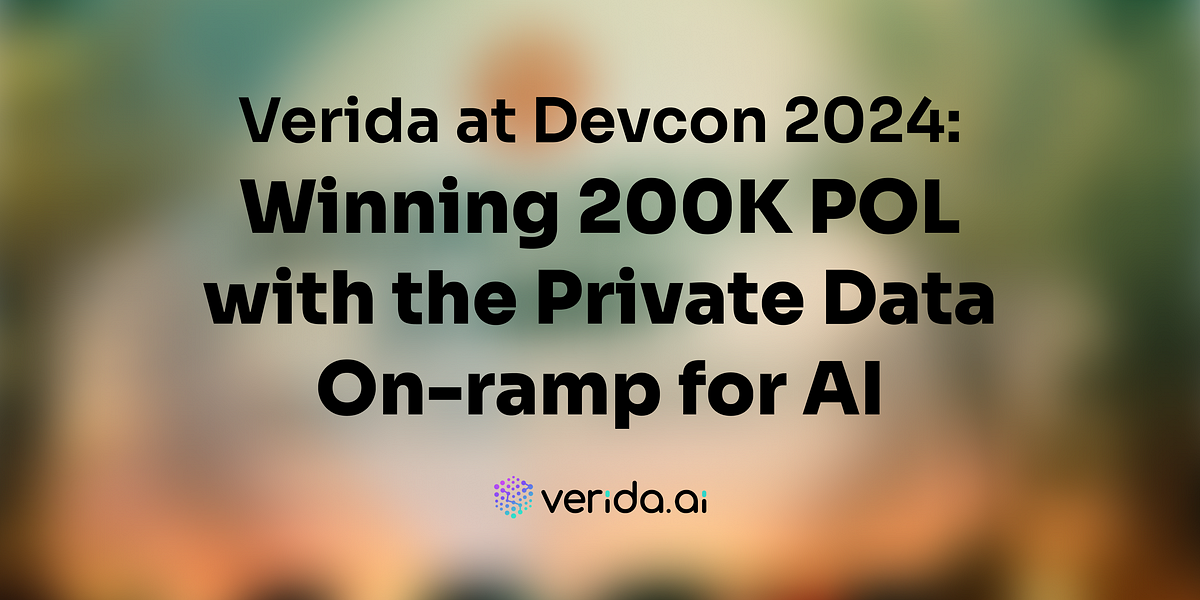
a year ago
Verida Secures Second Place at POL Rush and Showcases AI Potential at Devcon 2024
Verida recently achieved a significant milestone by securing second place in the POL Rush Competition, hosted by Polygon during the Aggregation Summit in Bangkok. This recognition awarded Verida 200,000 $POL and highlighted the company's innovative efforts in bridging Web2 user data with AI agent builders. CEO and Co-Founder Chris Were presented Verida's vision on the main stage at Devcon 2024, emphasizing the transformative potential of their technology. This achievement not only showcases Verida's progress in addressing the challenge of secure and private access to personal data but also reinforces its commitment to connecting Web2 and Web3, thereby unlocking new opportunities in the AI landscape.
Verida is positioning itself as the "private data on-ramp for AI," allowing users to easily extract personal data from various Web2 sources, including emails, chats, and healthcare data, and connect it to AI agents and data marketplaces. With three years of dedicated development, the Verida Network prioritizes user privacy and data sovereignty, ensuring that all personal information remains secure and under the user's control. The positive feedback from developers and AI enthusiasts at Devcon indicates a strong demand for seamless access to personal data, with Verida ensuring compliance with global standards like GDPR and HIPAA.
The conference also highlighted a growing trend towards Trusted Execution Environments (TEEs), which are becoming essential for secure computing. Verida's collaboration with ecosystem partners like TEN and Nillion emphasizes its mission to prioritize data ownership and privacy. With a unique market opportunity as the only project focused on unlocking personal data for AI applications, Verida is well-positioned to lead in this evolving space. The combination of winning the POL Rush competition, positive developer engagement, and interest from AI companies suggests that Verida is at the forefront of a significant shift in how personal data is approached in the AI era.
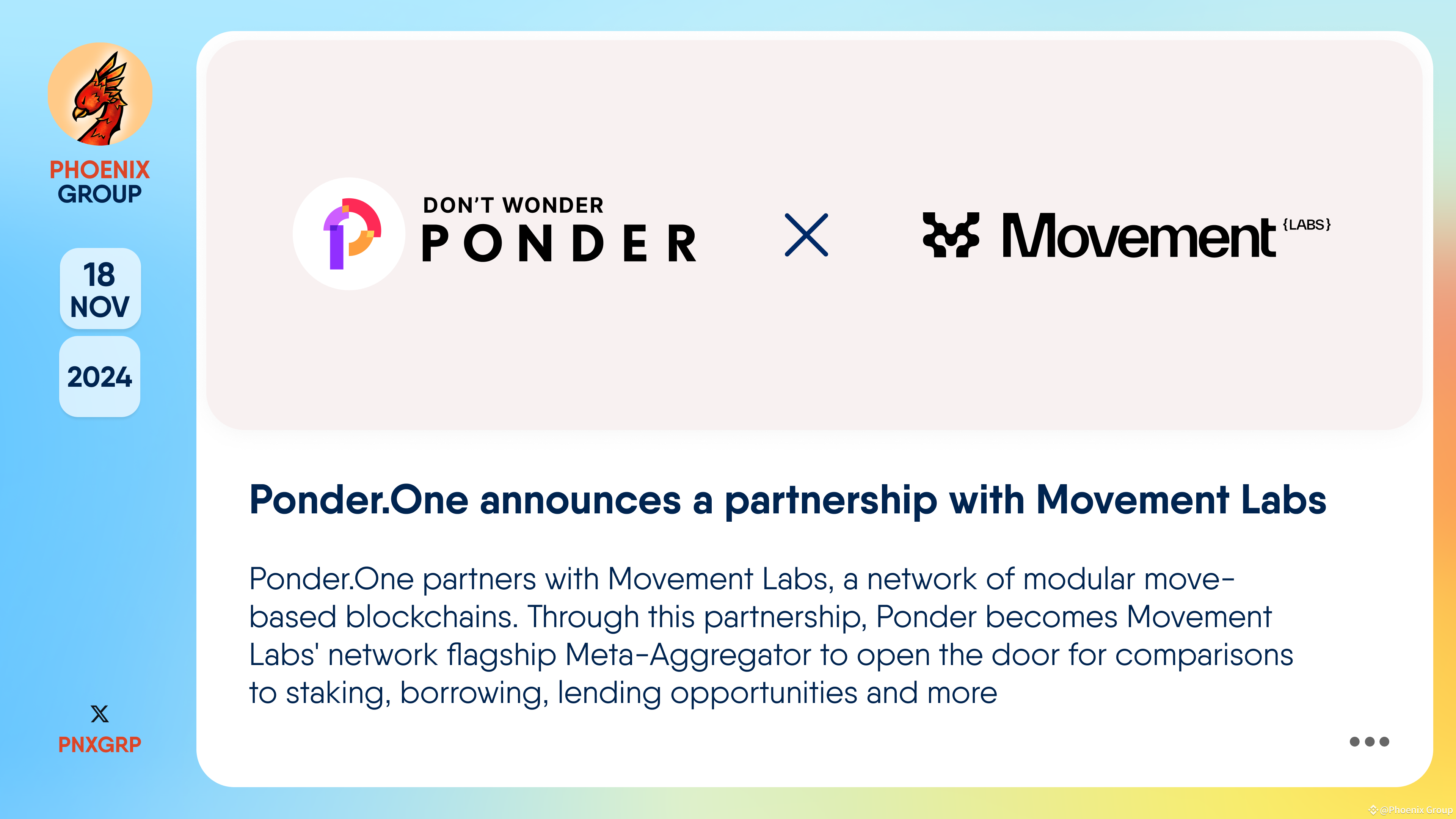
a year ago
Aethir Partners with LayerZero to Enhance Omnichain Capabilities
Aethir has announced a strategic partnership with LayerZero, an interoperability protocol, aimed at enhancing the Aethir ecosystem with omnichain capabilities. This collaboration will enable Aethir to support its development on the Sophon ZK chain, allowing the $ATH token to function as an omnichain asset. As Aethir transitions to a multichain network infrastructure, it will facilitate the migration of its decentralized physical infrastructure network (DePIN) stack to the Sophon ZK chain, marking a significant step in its evolution.
The $ATH token is positioned within Aethir's decentralized GPU cloud infrastructure, which is designed to serve as an enterprise-grade GPU-as-a-service provider, specifically tailored for artificial intelligence and gaming applications. This innovative approach not only enhances the utility of the $ATH token but also aligns with the growing demand for GPU resources in the AI sector. Aethir's commitment to providing high-performance computing solutions is further strengthened by this partnership with LayerZero, which will enhance interoperability across various blockchain networks.
Aethir has successfully raised over $32 million for its ecosystem, with backing from prominent investors such as Framework Ventures, Merit Circle, Hashkey, Animoca Brands, Maelstrom, and Mirana Ventures. This financial support underscores the confidence in Aethir's vision and its potential to revolutionize the GPU cloud infrastructure landscape, particularly in the realms of AI and gaming. The partnership with LayerZero is expected to propel Aethir's growth and solidify its position in the competitive blockchain space.

a year ago
Tory Green Leads io.net in Transforming Decentralized Infrastructure
Tory Green, with over two decades of experience in entrepreneurship and investment, has recently taken a significant role in the blockchain sector as he leads io.net, a decentralized physical infrastructure network (DePIN). His extensive background includes serving as a venture capitalist at Tiller Partners, where he supported various portfolio companies in executive roles. Green's previous experience as COO and CFO at Hum Capital, along with co-founding The Art of Charm, showcases his diverse skill set and commitment to innovation. His educational background includes a BA in Economics from Stanford University, coupled with athletic experience at the United States Military Academy at West Point, further highlighting his multifaceted approach to leadership.
Io.net recently completed a successful Series A funding round, raising $30 million to enhance its decentralized infrastructure capabilities. The platform utilizes a tailored consensus mechanism optimized for distributed infrastructure, enabling efficient participation from diverse nodes without high computational demands. Security is a key focus, employing cryptographic techniques and node verification to protect the network from malicious actions. Additionally, the integration of edge computing significantly boosts performance by processing data closer to its source, thereby reducing latency and improving response times for users and developers alike.
Interoperability with other blockchain platforms, such as Solana, is a cornerstone of io.net's strategy, enhancing cross-chain data flow and broadening adoption potential. The network's multi-layered security approach ensures data integrity through device authentication and encryption, while scalability is addressed through horizontal distribution of workloads and sharding techniques. Green envisions a transformative impact on DePINs by integrating AI with decentralized infrastructure, aiming to revolutionize industries like healthcare and finance with improved data security and cost-efficiency. His leadership philosophy, shaped by resilience and a hands-on problem-solving approach, is pivotal in driving io.net's mission forward in the rapidly evolving blockchain landscape.
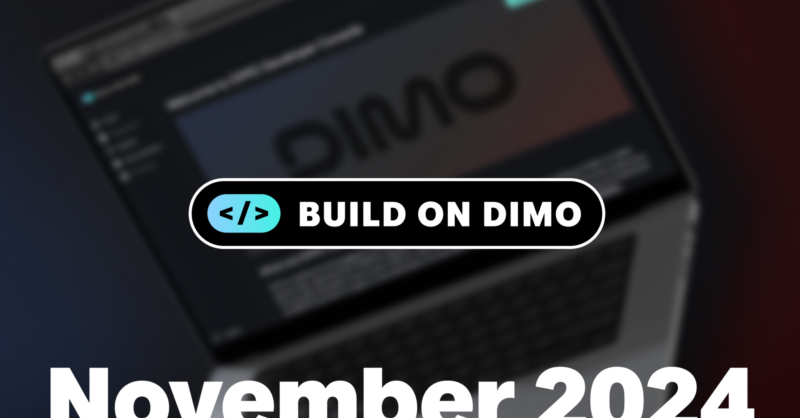
a year ago
DIMO Unveils Major Updates to Enhance Developer Experience
In the rapidly evolving world of web3, DIMO has made significant strides this month with the launch of several key features on its Developer Platform. The introduction of the Telemetry API now provides developers with enhanced data capabilities, including tire pressure and oil life for select Ford and General Motors models. This addition not only enriches the existing dataset but also empowers developers to create more functional applications. DIMO is dedicated to supporting developers in transforming their innovative ideas into reality, making it easier to integrate with DIMO data.
Reflecting on the past six months, DIMO has transformed its developer experience by launching multiple SDKs that streamline integration processes. Initially, developers faced challenges integrating DIMO API by API, but with the introduction of the dimo-node-sdk in Typescript and subsequent SDKs in Python and transactions SDK, the integration process has become significantly more straightforward. The recent launch of the login-with-dimo React Component SDK further simplifies sharing vehicle permissions, allowing developers to integrate vehicle data into their applications in just three steps. This evolution marks a pivotal moment for DIMO as it continues to lower barriers for web3 builders.
Additionally, the highly anticipated Developer Console v2 is now live, featuring updates designed to enhance the developer experience. Users can easily sign in using Google or GitHub, which streamlines account management. The console allows developers to purchase DIMO Credits (DCX) to power their projects, akin to AWS credits. While existing developer licenses from the old console remain valid, they will not be managed through the new platform, paving the way for a more unified and efficient ecosystem. DIMO encourages feedback from developers to further refine its offerings and continue fostering innovation in the blockchain space.
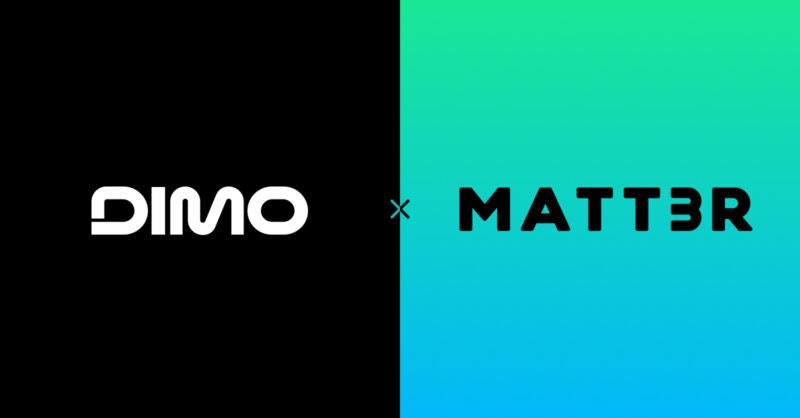
a year ago
DIMO Partners with MATT3R to Enhance AI and AV Development
The DIMO Foundation has announced a significant partnership with MATT3R, aiming to enhance the interoperability and decentralization of modern vehicle ecosystems. This collaboration is set to accelerate the development of artificial intelligence (AI) and autonomous vehicle (AV) models by improving data collection, validation, and accessibility. MATT3R will be the first company, after Digital Infrastructure Inc., to fully integrate within the DIMO ecosystem, utilizing the DIMO SDK and introducing a new hardware device to collect unique video datasets. This initiative represents a crucial step in expanding the DIMO protocol, which is designed to facilitate diverse data types and create a more interconnected environment for developers.
In the realm of computer vision, the ability to interpret visual data is essential for the advancement of autonomous vehicles. However, a major challenge lies in the acquisition of vast, high-quality datasets necessary for training AI models. MATT3R addresses this issue by enabling users to collect and share data from their vehicles through the K3Y device. This device allows for the aggregation of visual and sensor data, which is then categorized and labeled for developers' use. By leveraging a crowdsourced approach, MATT3R can provide developers with access to a wide array of real-world scenarios, thereby improving the robustness of their AI and AV models while ensuring user privacy and control over personal data.
The partnership also includes the integration of the DIMO SDK into MATT3R's Consol3 mobile application, allowing for seamless access for existing DIMO users and new users alike. This integration not only enhances user experience but also fosters a mutually beneficial relationship between developers and users. As MATT3R prepares to launch the presale of the K3Y devices in November, this collaboration promises to create a trustworthy data ecosystem that enhances the efficiency and quality of AI and AV model training on a global scale. The DIMO protocol's validation framework will further ensure the integrity of the collected data, paving the way for a decentralized future in automotive technology.

a year ago
DCG Launches Yuma to Accelerate Decentralized AI with Bittensor
Barry Silbert, the CEO of Digital Currency Group (DCG), has expressed his belief that Bittensor could be as transformative as Bitcoin. To support this vision, DCG has launched a new company named Yuma, which will act as an accelerator for startups interested in exploring the Bittensor ecosystem. Bittensor itself is a decentralized network that incentivizes contributions of data and computing power for various AI tasks, ranging from text translation to complex protein structure prediction. Silbert likens Bittensor to the World Wide Web of AI, highlighting its potential to democratize AI technology and reduce the dominance of major tech corporations.
Yuma aims to incubate and build businesses that utilize decentralized AI, with plans to support startups and enterprises in launching their own subnets within the Bittensor framework. Silbert will take on the role of CEO at Yuma, which is expected to start with around 25 employees. The company operates under a model similar to Y Combinator, providing resources and support for both accelerator and incubator partnerships. Currently, Yuma has five active subnets, with additional projects in development, showcasing a diverse range of applications including bot detection, time series predictions, and AI research.
The interest in decentralized AI is not a recent development for DCG, as they made their first investment in Bittensor back in 2021. With the addition of funds dedicated to AI through Grayscale, DCG is positioning itself at the forefront of this emerging technology. The native cryptocurrency of Bittensor, $TAO, plays a crucial role in incentivizing decentralized workers, whether they are miners providing computing services or validators ensuring quality contributions. As Yuma continues to grow, it aims to foster innovation and collaboration within the Bittensor ecosystem, paving the way for a new era of decentralized AI applications.

a year ago
Digital Currency Group Launches Yuma to Innovate on Bittensor's Decentralized AI Network
Digital Currency Group (DCG), under the leadership of Barry Silbert, has officially launched Yuma, a new subsidiary aimed at promoting innovation within the Bittensor decentralized AI network. Yuma's mission is to equip startups and enterprises with the necessary resources to develop, train, and utilize artificial intelligence in a decentralized framework. Central to Bittensor's ecosystem is the $TAO token, which incentivizes participation by rewarding contributors for their computing power and the quality of their work. This model not only encourages efficiency but also fosters collaboration among users, making it a compelling alternative to traditional, centralized AI systems dominated by major tech companies.
Yuma is designed to support various AI-driven projects that can earn rewards through the Bittensor network. The company offers two distinct partnership models: an accelerator program tailored for startups and established enterprises, and a subnet incubator that facilitates the creation of new projects from the ground up. Through its early subnet incubator program, Yuma has already formed partnerships with several firms, including Sturdy, Masa, Score, and Infinite Games. Additionally, it has collaborated with Foundry to launch the S&P 500 Oracle subnet, showcasing its commitment to building a robust ecosystem around decentralized AI.
As Bittensor co-founder Jacob Steeves noted, the platform was created to provide a competitive alternative to the conventional top-down approach that restricts access to advanced AI capabilities. DCG's involvement with Bittensor dates back to 2021, and its asset management arm, Grayscale, has since introduced a Bittensor Trust and a decentralized AI fund, with Bittensor accounting for 21% of the latter. This strategic investment underscores the growing importance of decentralized networks in the future of artificial intelligence and digital ownership.
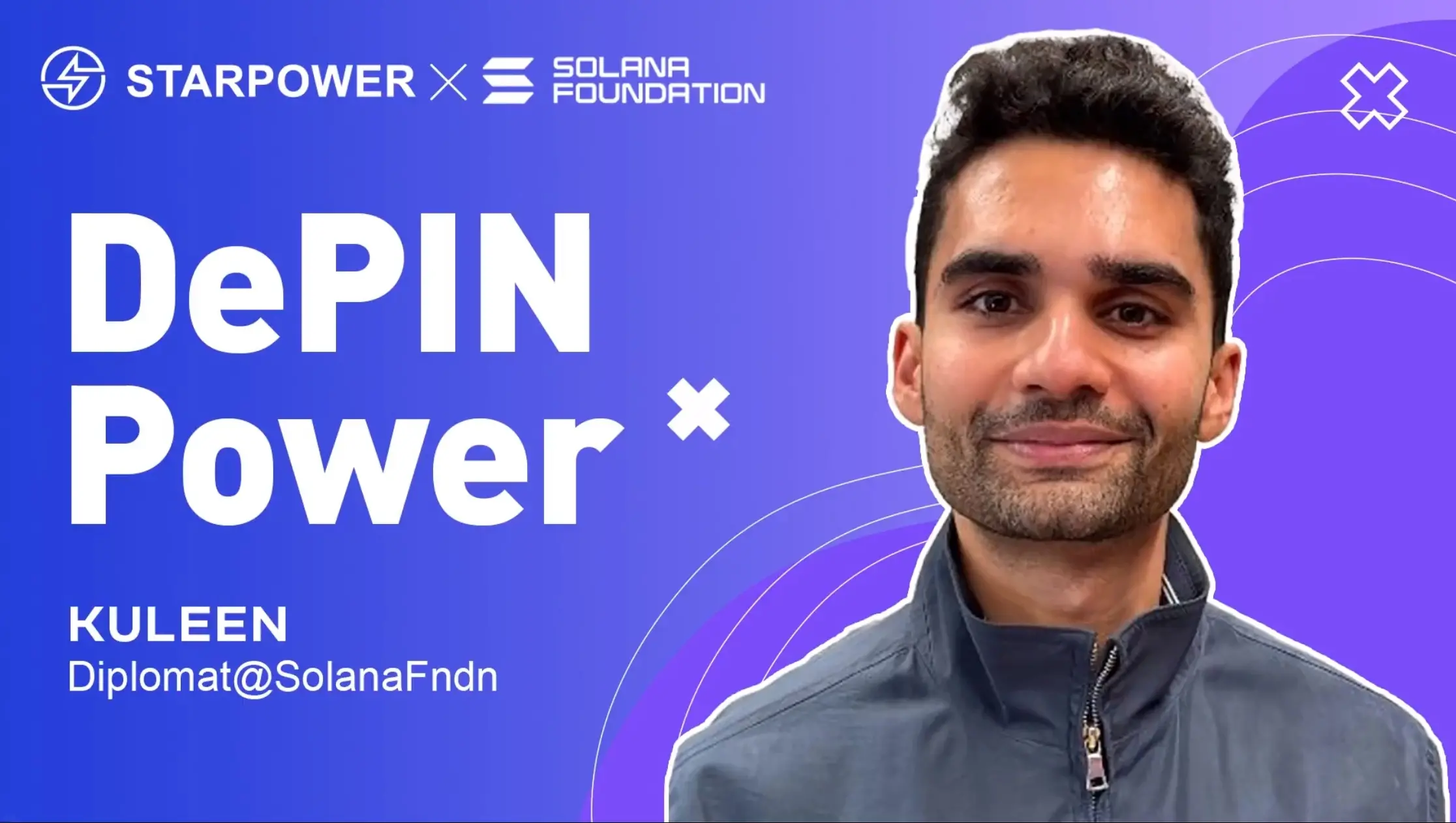
a year ago
The Future of Energy DePIN: Insights from Starpower and Solana Foundation
In a recent podcast episode of DePIN Power, Starpower co-founder Laser engaged in a conversation with Kuleen, the DePIN lead at the Solana Foundation, about the future of energy-focused DePIN projects. Starpower is positioning itself as an open distributed energy network protocol, aiming to connect third-party energy devices and surpass Tesla in device connections within five years. With the mainnet launch expected in the first quarter of next year, Starpower is optimistic about the growth of DePIN in the energy sector, especially as they conduct airdrop activities to build momentum before the launch.
Kuleen expressed excitement about the intersection of DePIN and energy, predicting that energy DePIN will emerge as a significant trend in the coming months. He highlighted the need for a transformation in energy infrastructure due to climate change and increasing energy demands. Kuleen's experience at the Solana Foundation, where he collaborates with various teams, has allowed him to witness the potential of DePIN in addressing energy challenges. He noted that the decreasing costs of renewable energy sources, particularly solar, make this an opportune time for innovation in the sector.
Both Laser and Kuleen emphasized the importance of community and collaboration within the Solana ecosystem. Kuleen pointed out that the cultural fit, technical advantages, and economic foundation of Solana attract many DePIN projects. As the ecosystem grows, maintaining community interaction and support becomes crucial. With talented founders entering the energy DePIN space, there is optimism that the right conditions are aligning for significant advancements in energy infrastructure, driven by decentralized solutions and innovative technologies.

a year ago
AKT Token Soars After Binance Futures Listing
AKT, the native token of Akash Network, has recently emerged as a significant gainer in the cryptocurrency market, particularly after securing a perpetual listing on Binance Futures. On November 19, the token surged by 35%, reaching a six-month high of $4.66, which elevated its market capitalization to over $1 billion. This remarkable increase has allowed AKT to re-enter the top 100 cryptocurrencies by market cap, currently holding the 99th position. The trading volume for AKT also saw an astronomical rise of 2500% in just one day, exceeding $368.1 million, indicating a robust interest from traders and investors alike.
The price increase can be attributed to Binance Futures' announcement of the AKTUSDT Perpetual Contract, which allows traders to leverage their positions up to 75x. This has attracted many traders looking for high-risk, high-reward opportunities. Additionally, rumors surrounding potential changes in U.S. capital gains tax policies, particularly those that could benefit cryptocurrencies issued by U.S. companies, have further fueled interest in AKT. As Akash Network aims to revolutionize cloud computing through decentralized, blockchain-based solutions, the AKT token is expected to play a crucial role in its ecosystem.
Despite the excitement within the AKT community, analysts are cautioning about a potential price correction. TraderSteve_, a pseudo-anonymous analyst, highlighted that AKT might encounter selling pressure at the resistance level of $4.732, a threshold it has struggled to surpass in the past. While the current indicators suggest that AKT is overbought, with a Relative Strength Index reading of 76, the long-term outlook remains positive, with speculations that the token could eventually reach as high as $28. However, it is essential for investors to remain vigilant as the market dynamics evolve.
Signup for latest DePIN news and updates